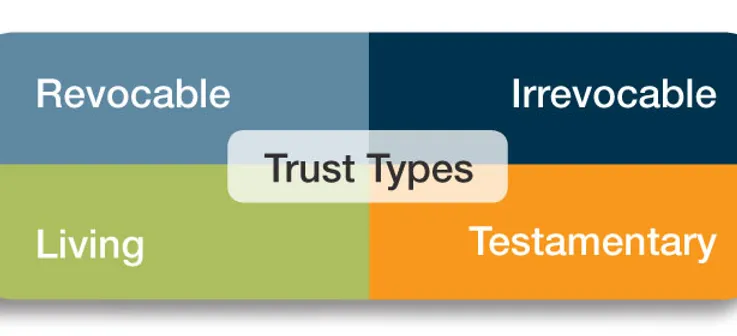Wills & Trusts
Estate Administration
A trust is a device for the management of property where one person, the grantor (sometimes called the settler, trustor or trust maker), transfers property to another person (or corporate entity), the trustee, for the benefit of the trust beneficiary. A trust exists when a grantor transfers the legal title to the trustee who is to hold that title for the benefit of the beneficiaries (the beneficial owners).

A revocable trust is one where the grantor retains the right to revoke the trust during his lifetime, as well as the right to alter or amend the trust. Assets in a revocable trust are includible in the grantor gross estate for federal estate tax purposes. In estate plans, which utilize revocable trusts(sometimes referred to as “living trusts” the will, is frequently structured to simply transfer all property remaining at death (usually after any specific bequests of personal property) into the existing trust. This is often referred to as a “pour-over” will. The primary purpose of the revocable trust is to manage assets (especially in the event of the grantor’s incapacity) and to avoid probate. (For more details see Revocable Trusts)
With an irrevocable trust the grantor completely relinquishes title to the property and does not retain a right to alter, amend or revoke the trust. Irrevocable trusts are permanent. Since the grantor gives up all control and dominion over the transferred property, the assets of an irrevocable trust are not includible in the grantor’s gross estate for federal estate tax purposes.
As its name implies, a testamentary trust is created in the will of the grantor and takes effect under the will after the will-maker’s death.
A living trust is simply one that is created to take effect during the lifetime of the grantor, as distinguished from a testamentary trust, which does not become operative until death. A living trust is also called an inter-vivos trust (inter-vivos is Latin for “during lifetime”). Living trusts can be revocable or irrevocable.